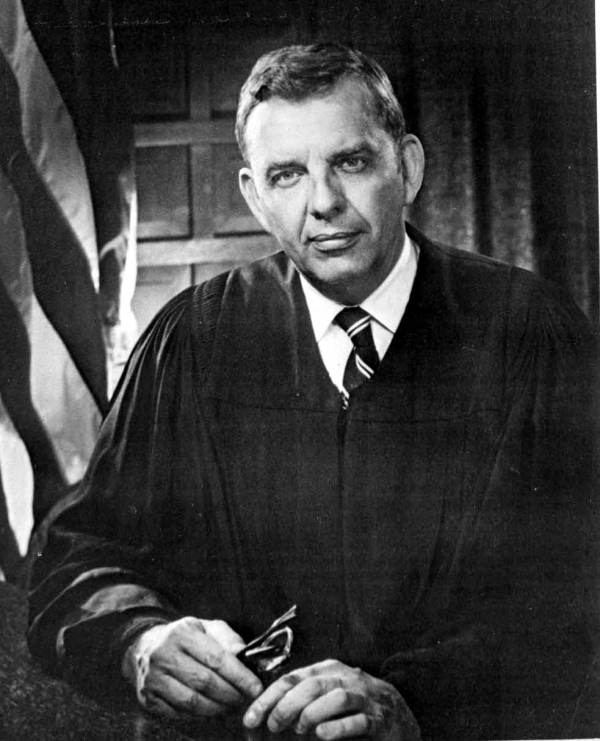[New to the Journey? Read this for a brief introduction!]

by Gideon Marcus
There ain't no Justice
It was only a few months that President Dicky tried to ram a conservative Supreme Court justice pick through the Senate to replace the seat left open by the retirement of the much laureled Chief Justice Earl Warren. Clement Haynworth's candidacy went down to defeat in the Senate on November 21 of last year.
Now up is G. Harrold Carswell, until last year, the Chief Justice of the United States District Court for the Northern District of Florida. He was elevated to the Fifth Circuit Appellate Court last June. To all accounts, he is no less conservative than his predecessor, and he's a (former?) segregationist to boot. His jurisprudence is also lacking: 40% of his rulings were overturned on appeal! As Senator McGovern observed, "I find his record to be distinguished largely by two qualities: racism and mediocrity." Nebraska's Senator Hruska damned with faint praise in his reply, to the effect saying, "Sure he's mediocre…but don't the mediocre warrant representation, too?"

G. Harrold Carswell
But as LIFE and other outlets are noting, Nixon's soothing rhetoric thinly veils a deeply conservative agenda, cutting social programs, withdrawing from world affairs, and trying to stack the Court with allies. Carswell's nomination passed the Senate Judiciary Committee on February 16 of this year. We'll see if the Senate as a whole can stomach him for the Court proper.
Plus ça change
Galaxy's editor Eljer Jakobsson is like Richard Nixon (well, perhaps this is a stretch, but indulge me—I need some sort of transition here!) He is trying all of the styles at his disposal in this new decade of the 1970s and seeing what sticks. The result remains inconsistent, but not unworthy.

cover by Jack Gaughan

![[March 8, 1970] They say that it's the institution… (April 1970 <i>Galaxy</i> and the incomplete Court)](https://galacticjourney.org/wp-content/uploads/2025/03/700308galaxycover-412x372.jpg)








![[March 2, 1968] Rules and Regulations (April 1968 <i>IF</i>)](https://galacticjourney.org/wp-content/uploads/2023/02/IF-1968-04-Cover-639x372.jpg)

 The stars of the show. (l.) Jean-Claude Killy sporting his medals. (r.) Peggy Fleming in her spectacular performance.
The stars of the show. (l.) Jean-Claude Killy sporting his medals. (r.) Peggy Fleming in her spectacular performance. The Advanced Guard prepare to study the fauna of Chryseis. Art by Vaughn Bodé
The Advanced Guard prepare to study the fauna of Chryseis. Art by Vaughn Bodé